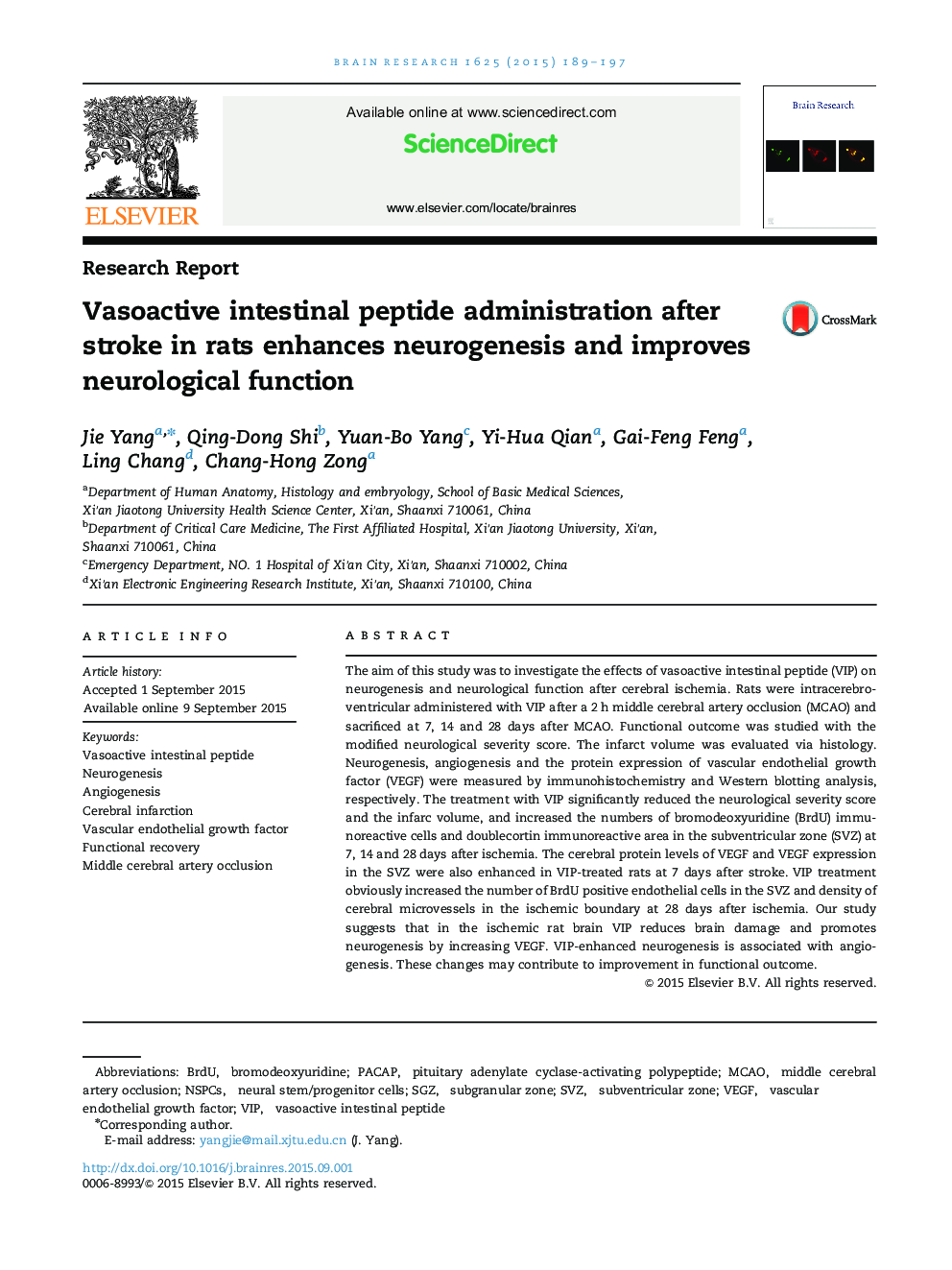| Article ID | Journal | Published Year | Pages | File Type |
|---|---|---|---|---|
| 6262859 | Brain Research | 2015 | 9 Pages |
â¢VIP treatment exerts a neuroprotective effect that reduces infarct volume after MCAO.â¢VIP promotes neurogenesis that is mediated through increasing VEGF.â¢VIP-enhanced neurogenesis is associated with angiogenesis.â¢These effects result in better functional outcome.
The aim of this study was to investigate the effects of vasoactive intestinal peptide (VIP) on neurogenesis and neurological function after cerebral ischemia. Rats were intracerebroventricular administered with VIP after a 2Â h middle cerebral artery occlusion (MCAO) and sacrificed at 7, 14 and 28 days after MCAO. Functional outcome was studied with the modified neurological severity score. The infarct volume was evaluated via histology. Neurogenesis, angiogenesis and the protein expression of vascular endothelial growth factor (VEGF) were measured by immunohistochemistry and Western blotting analysis, respectively. The treatment with VIP significantly reduced the neurological severity score and the infarc volume, and increased the numbers of bromodeoxyuridine (BrdU) immunoreactive cells and doublecortin immunoreactive area in the subventricular zone (SVZ) at 7, 14 and 28 days after ischemia. The cerebral protein levels of VEGF and VEGF expression in the SVZ were also enhanced in VIP-treated rats at 7 days after stroke. VIP treatment obviously increased the number of BrdU positive endothelial cells in the SVZ and density of cerebral microvessels in the ischemic boundary at 28 days after ischemia. Our study suggests that in the ischemic rat brain VIP reduces brain damage and promotes neurogenesis by increasing VEGF. VIP-enhanced neurogenesis is associated with angiogenesis. These changes may contribute to improvement in functional outcome.
